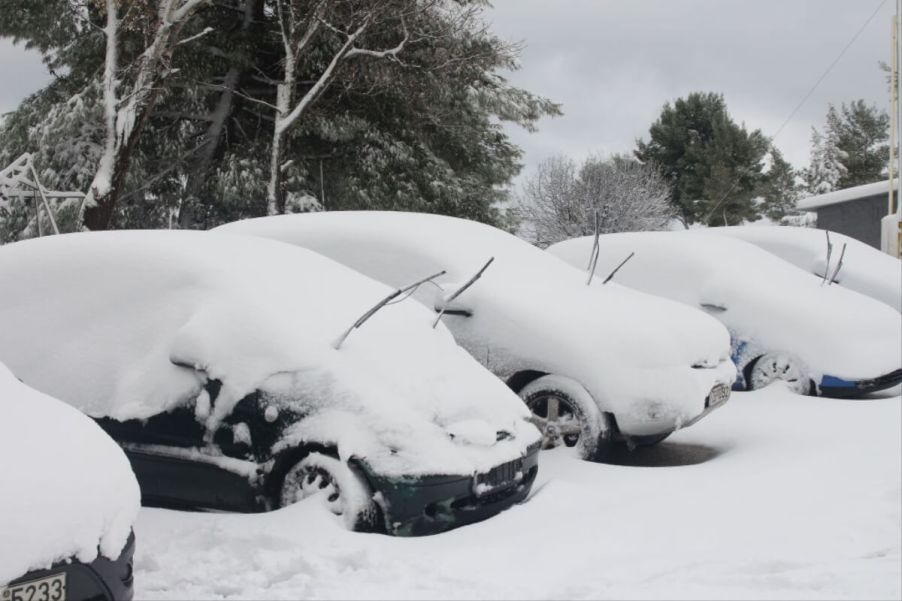
3 Tips to Prepare Your Car for Winter Driving that Folks Often Overlook
Most folks know all the basics for winter car preparation. Things like ensuring you’ve got good tires and a decently functioning heater are a no-brainer. There are, however, some easy-to-forget staples of preparedness for winter driving that are equally as important. Let’s dig into it!
Check your car’s battery before winter driving

You might hop right in your car and fire it up every single day with a dying battery and be none the wiser. That’s because batteries like to operate in warmer temperatures. Unfortunately, cold temps can drastically reduce your battery’s effective capacity and amperage output. For those unaware, amperage is what runs your car’s starter.
Great news, though! Most automotive parts stores like O’Reilly, Autozone, and Carquest offer free battery checks. Most can check your battery with it still in the car and give you the overall health status of your battery. If you live in an extremely cold climate or often find yourself driving in the winter, a deep-cycle battery would be a smart investment.
While you’re there, most parts stores will check your alternator for free, too. Ensure that your battery is being adequately charged as you drive!
Driving in the winter means checking your tire pressure regularly

Extreme temperature fluctuations can greatly affect the internal air pressure of your tires, especially when driving in the winter. Ideally, you’ll want to drive your car for a bit before checking the air pressure. Though it may be cold outside, friction against the road will still warm the tires up and balance out some pressure fluctuations. Just keep an eye on your tire pressure and make sure it’s where it needs to be!
Having too much or too little tire pressure when driving on snow or ice can be extremely dangerous. This is especially true if you don’t have a winter tire compound. Snow tires or good all-seasons are highly recommended.
Check oil and other fluids when winter driving

Starting winter off with an oil change is never a bad idea. That’s especially true if you’re due for one or don’t know what weight oil is in your car. Ensure you’re within your manufacturer’s recommended oil specs for your engine.
Coolant, or its more winter-ideal pseudonym, antifreeze, is extremely important when driving in the winter. Making sure you’ve got quality antifreeze with a proper water mixture is imperative. If you have too much water in your cooling system, it can freeze overnight and cause serious damage to your engine.
Overall, preparing your car for winter driving is pretty common sense. It’s worth making a special note to pay close attention to these three aspects, though. They are fairly easy to forget but could have very expensive and dangerous consequences.



